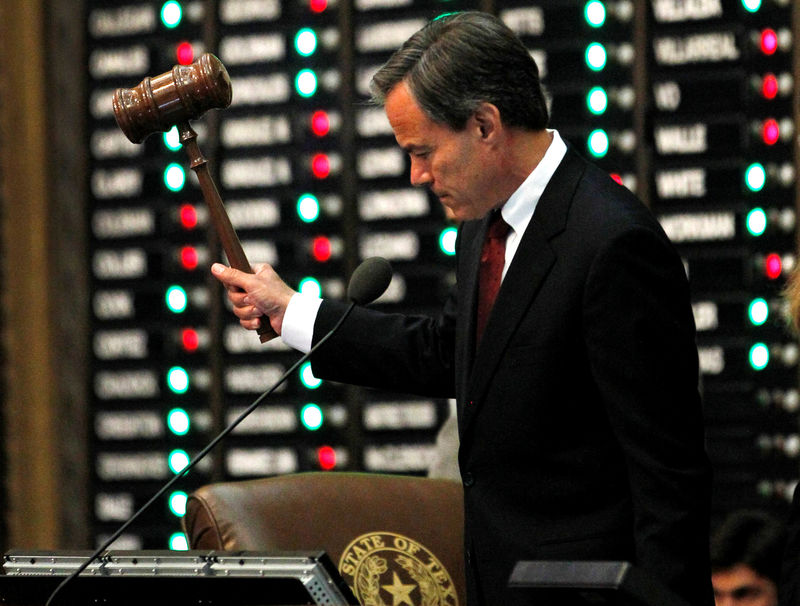By Jon Herskovitz
AUSTIN, Texas (Reuters) - The Republican speaker of the Texas House of Representatives said on Friday a bill to limit bathroom access for transgender people would face a tough time in the chamber, where there are worries of an economic hit to the state if it became law.
Speaker Joe Straus, who sets the Republican-dominated House's legislative agenda, stopped short of saying the measure was doomed. He made his remarks at a University of Texas forum in Austin.
"I don’t feel a great deal of fervor to promote that bill in the House," Straus said.
Analysts expect Straus to send Senate Bill 6 (SB 6) to a committee led by one of his political supporters, who will keep it tucked away. The measure would then die when the current session ends in late May.
"Straus is signaling very clearly that SB 6 is dead," said Mark Jones, a professor of political science at Rice University in Houston.
Straus reiterated his opposition to the legislation, which was approved by the Republican-controlled state Senate this month on a mostly party-line vote.
The bill would require people to use restrooms in public schools and government-run buildings that correspond with the gender on their birth certificate rather than the gender with which they identify.
The speaker called it "manufactured and unnecessary."
The bill is one of several similar measures before various state legislatures this year on the issue.
A similar law enacted a year ago in North Carolina prompted the relocation of sporting events and economic boycotts that were estimated to have cost the state hundreds of millions of dollars.
The Texas Association of Business, the state's largest employers' group, has said such a law there would cost the state billions of dollars in lost revenue a year.
The bill's main backer, Republican Lieutenant Governor Dan Patrick, has said it would keep sexual predators out of bathrooms and changing rooms, and he has labeled as fiction reports that there would be economic effects on the state.

Straus' San Antonio district is planning to host the NCAA men's Final Four basketball championship next year. Economists forecast the region could lose more than $200 million in revenue if the legislation was passed and in response the NCAA were to relocate the championship.